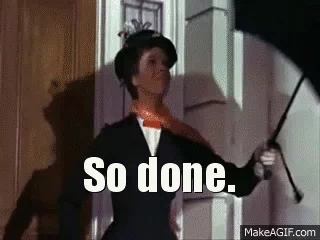
This logo isn't an ad or affiliate link. It's an organization that shares in our mission, and empowered the authors to share their insights in Byte form.
Rumie vets Bytes for compliance with our
Standards.
The organization is responsible for the completeness and reliability of the content.
Learn more
about how Rumie works with partners.
You feel stuck in your job. You've been with the company for several years, and it seems there's no room to grow. Time to move on!

But now you're worried! What if a potential new employer asks, "Why weren't you promoted at a previous workplace?"
Why hiring managers might ask this question

Hiring managers want to find out about:
Your skills and qualifications. Are there any skills you're missing, despite what your resume says? Was your performance the reason for not getting promoted?
Your attitude. Are you frustrated or bitter about not being promoted? Or do you lack the motivation and drive to take the next step in your career?
Don't get defensive or emotional in your interview — that's never a good look! Instead, share reasons that you can back up with facts.
Reason 1: Lack of Qualifications

It's better to admit if you weren't promoted because you were lacking skills, instead of hiding the fact.
If you plan to use this reason, first double-check the job description to make sure that the position you're applying for doesn't require these skills.
Example answer:
"The next position up would have required a lot of public speaking and I don't have much experience. I prefer a backstage role, which is what attracted me to this job."
Reason 2: Organizational Structure

Your current company might simply be too small for you to get promoted.
There aren't enough senior positions you can move up to, or at least no senior positions that match your skills.
Example answer
"There were no open positions at my company during the time I was there. My manager leaving would have been my only opportunity for a promotion. I'm eager for more responsibilities. That's why I'm applying here".
Reason 3: Changing Priorities

You did important work at your company, but your role wasn't clearly defined.
You were preoccupied with supporting other roles in your company.
You moved through the company horizontally rather than vertically.
Instead of being promoted in one specific role, you were constantly changing roles.
Example answer
"I used to be a generalist and worked in different functions in my company. I enjoyed the learning experience, but now I know which role I want to focus on and grow in."
Reason 4: Your Choice

A promotion often means taking on extra responsibilities and tasks that don't line up with your personal life.
If that's why you declined a promotion, you're in good company, as more and more employees value freedom and flexibility over a job title.
Example answer
"I was offered a promotion, but it would have meant moving to a different city and travelling 50% of the time. That didn't work for me at the time."
Scneario: Jonas' Interview
 Photo by The Jopwell Collection on Unsplash
Photo by The Jopwell Collection on UnsplashJonas has been working as a graphic designer in a small marketing agency for four years. He often handles several responsibilities at once, but it never resulted in a change of his job title.
He wants to get ahead in his career, but doesn't see any opportunities in his current company.
Now he's applied for a job at another company and the interviewer is asking Jonas why he hasn't been promoted.
What should Jonas answer?
Answer 1: "It annoys me that I haven't been promoted. I worked hard and took on so many extra responsibilities. It wasn't fair."
Answer 2: "Our agency is a small team of 15, and my only chance for a promotion would occur if someone else left. I feel that I have outgrown my current job."
Answer 3: "I don't really care what job title I have. I care more about the quality of my work and my work-life-balance."
Answer 4: "My manager wanted to promote me into a more operational role, but I'm not interested in going in that direction."
Quiz
Which answer is best?
The best and most plausible answer is that Jonas' current company is too small in size to frequently promote employees. There aren't enough senior positions. He's eager to take the next step in his career, so Jonas shouldn't make it seem as if he declined a promotion.
Take Action
Ready for your next job interview?

Prepare with these steps:
This Byte has been authored by
Silke Simons
Learning Designer